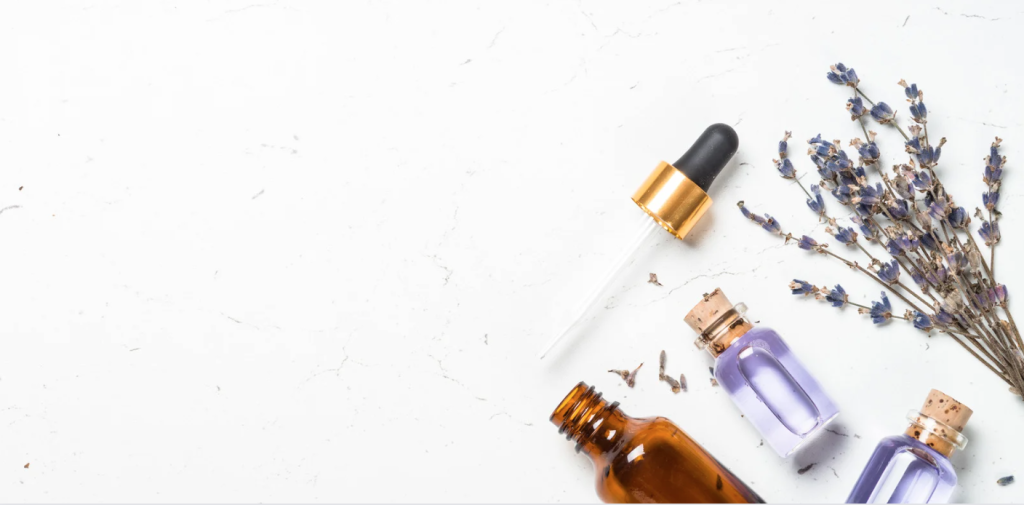Essential Oils… Just because something is natural doesn’t mean it is safe under all circumstances.
Plants are structured in a way to adapt on air, soil, water, and sunlight. This chemical activity results in primary metabolites (such as proteins, enzymes, and chlorophyll) which are vital to the plant’s life. Essential oils (EOs)are the secondary metabolites. They are the end product of the plant’s metabolism. However, essential oils are still very important for the plant for predatory defense, disease resistance and attracting pollinators. EOs are generally extracted through steam and hydro distillation processes. They are extremely potent and concentrated, therefore it is important to use them appropriately and safely. People often “natural” means safe, but there are plenty of natural compounds and chemicals that aren’t safe.
Essential oils are extremely concentrated substances that demand careful use. When using essential oils, it’s important always to follow safety guidelines and watch for possible sensitivities or reactions.
You can experience side effects when you use essential oils, especially if you use them incorrectly.
- Using them on your skin can result in irritation or pain, especially if the oil is “hot” (meaning it’s prone to irritating skin and mucus membranes) or not diluted enough.
- Some citrus essential oils, like lemon and lime, can cause phototoxicity. This is a reaction in which the skin burns severely in sunlight.
- Too much skin exposure can result in sensitization, leaving you unable to be around a particular essential oil, similar essential oils, or all essential oils.
- Inhaling too much can cause nausea, headaches, and dizziness.
- Babies, young children, pregnant women, elders, people with chemical sensitivities, and pets are all more susceptible to side effects. Therefore, it’s vital to exercise extra caution when using essential oils around these people and animals so no one is hurt.
- Extreme exposure has caused seizures, loss of consciousness, and even death.
- As mentioned earlier, essential oils are highly concentrated plant extracts. Since they’re so potent, you should always dilute them before applying them to your skin. That goes for every brand, no matter how pure and “therapeutic” it is.
- If you don’t dilute your essential oils, you can become overly sensitive to them. This is aptly called sensitization and can manifest as itching, swelling, or redness anytime your skin is exposed to essential oils. Once you experience a sensitization reaction, you may never be able to use certain, or any, essential oils on your skin again.
- Different essential oils require different dilution rates.
Kungul is extremely concerned with the trend of freely ingesting essential oils. People demonstrate this by adding them to their water, placing them in homemade capsules, or even dropping them directly under or on their tongues. This is dangerous advice and an immediate red flag. Anytime you see someone share this kind of guidance, you can know immediately that the person isn’t a trusted source for essential oil information.
Improperly ingesting essential oils can lead to serious digestive tract and liver damage. Additionally, you’re at much greater risk for neurological adverse events like seizures, dizziness, and loss of consciousness when ingesting oils.
Finally, remember that water and oil don’t mix. When you drop some essential oil into water, it doesn’t freely disperse, so it’s not diluted. It floats on top at its full strength. If you decide to drink that essential oil and water combination, the oil hits the sensitive tissue in your throat and mouth, increasing your risks for tissue irritation, injury, and even long-term damage.
EOs as endocrine disruptors
Your endocrine system includes glands that produce hormones to regulate metabolism, sleep, mood, appetite, sexual function, growth, and more. When these glands produce too much or too little of any hormone, it can result in symptoms including weight gain, mood swings, low libido, disturbed sleep, hot flashes, and fatigue.
Dr. Romy Block, board-certified endocrinologist, says essential oils can act as endocrine disruptors, which means they interfere with the natural production of your hormones.
Essential Oil can either lower or raise the normal hormone levels in the body.
Dr. Romy Block
Dr. Block also points out that “causing disruption of development, reproductive changes or even interference with the immune system. Research has shown lavender oil to be associated with early breast development in girls, for instance. Lavender and tea tree oil are also thought to lead to a condition called prepubertal gynecomastia (abnormal breast tissue growth) in boys.
Dr. Block advises against diffusing lavender and tea tree oils because of the potential complications, particularly in children and teens. Pregnant women and people who have hormone-related medical conditions such as diabetes should talk to their doctors before using essential oils topically or with a diffuser.
Essential oils and allergies
The main and most immediate health consequence of using essential oils is probably allergy symptoms. You would know if you had an allergic reaction to an essential oil, because it would result in typical symptoms, such as itchy and watery eyes, runny nose, sneezing and congestion. Topical use of essential oils could result in dermatologic allergy symptoms, including redness, hives, itchiness and swelling of the skin.

Which essential oils are safe?
As of this writing, there’s not enough evidence about essential oils to make a definitive “safe” and “not safe” list. Right now, most essential oils are considered safe and can be used properly, and various studies report the health benefits of different essential oils. That doesn’t mean they’re without drawbacks, though. Here are just a few more examples of the benefits and drawbacks of essential oils: Lavender is known to help with sleep and relaxation, but, as mentioned above, it could act as an endocrine disruptor.
Here are just a few more examples of the benefits and drawbacks of essential oils:
- Lavender is known to help with sleep and relaxation but, as mentioned above, it could act as an endocrine disruptor.
- Eucalyptus is soothing, but it can cause seizures if ingested.
- Chamomile can help you unwind, but people with allergies to ragweed, daisies and other plants may have severe reactions.
- Peppermint is loved for the cooling effect it has on skin but it’s also known to cause skin rashes, burning and flushing, among other side effects.
Again, it’s hard to make a black-and-white list of essential oils to avoid. Because people can have different reactions to different oils: Only the individual can know which ones to avoid.
How to safely use essential oils?
- Talk to your doctor before use if you’re pregnant or have any medical conditions.
- Talk to your vet if you want to use essential oils on your pet.
- Stop diffusing essential oils that give you allergy symptoms, such as coughing, sneezing or water eyes.
- Try a patch test before topically using essential oil. To perform a patch test, place a diluted drop of oil onto a small portion of your skin. If you develop dermatologic symptoms, wash the oil off and don’t use it on your skin.
- Don’t keep your pet in a room with an essential oil diffuser running, and leave doors open so they can freely move about.
In conclusion, essential oils offer a myriad of health benefits, from promoting relaxation to supporting physical wellness. However, their potency and biological activity mean they must be used with a deep respect for safety guidelines. Whether you’re a seasoned user or new to essential oils, remember that natural doesn’t always mean safe. By educating yourself, consulting with healthcare professionals, and adhering to proper dilution and usage practices, you can enjoy essential oils’ aromatic and therapeutic benefits while minimizing risks. Let’s embrace the natural power of essential oils with knowledge and care, ensuring a safe and beneficial experience for all. Kungul is here to empower you!

